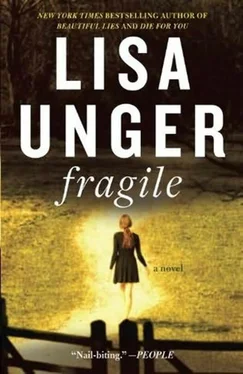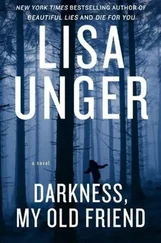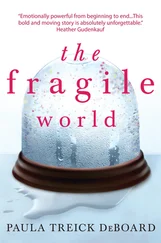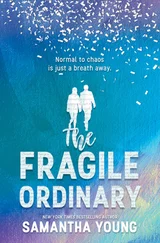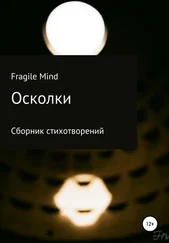They also said that he killed his mother. It was an accident; a terrible fall from a steep staircase into the basement. His father found them. The boy sitting mute at the top, his mother in a heap on the floor below, neck broken, blood pooling. What precisely happened or how long he’d been sitting there was not clear. But the incident followed him through grade school, middle school, high school, and beyond. The story was whispered behind his back over two generations. He became a kind of bogeyman to some. He walks the woods behind the school, watches the girls. Watch out. Tommy Delano’s waiting for you .
But when Maggie saw him, she just thought he was a sad man, fixing the buses that sat broken in the yard. He didn’t seem frightening, with his narrow shoulders and grease-stained coveralls, barely raising his eyes from the ground. He was in the woods behind the school sometimes, smoking cigarettes.
Sometimes the senior boys would gather around the bus yard fence and taunt him. Why’d you kill your mom, Tommy boy? How horrible , Maggie remembered thinking, the children of people he’d gone to school with taunting him over an accident that had killed his mother. As a girl, she just didn’t understand cruelty, didn’t understand why some people felt good about making other people feel bad. Even now, she didn’t understand it much better. Maggie never saw Tommy react. Sometimes he’d just go inside one of the buses until the boys went away on their own or were reprimanded by one of the teachers.
After the first twenty-four hours passed, and Sarah didn’t return home and it was clear she wasn’t hiding out at the homes of any of her friends, Maggie noticed a palpable shift in energy; the twittering nervousness waxed to cold fear. Maggie spent an entire English class distracted by the empty seat near the window that would have been occupied by Sarah. It struck her as so frightening and strange that someone was missing and that Miss Williams still stood at the head of the class, giving her lesson about metaphor, and Vicki and Michelle were passing notes, and Trevor was doodling in his notebook. Maybe it was just a trick of memory, but by the second day-when the squad cars were parked in front of the school and the students were dismissed early-she remembered knowing on some deep level that Sarah wasn’t coming back, and that everything else would move forward anyway.
Maggie couldn’t remember when suspicion turned to Tommy Delano, but it was at some point after the psychic arrived. Eloise Montgomery looked just like anyone’s mom, with a plaid shirt and high-waisted jeans, a brown faux-leather purse clutched to her side. By lunch, the popular girls had already gathered to make fun of her hair, a blunt, unflattering cut that looked like a helmet. There was nothing else notable about her, not a searing gaze or a glowing aura. On her way to biology class last period, Maggie saw the psychic sitting in the music room, talking to Sarah’s teacher. The woman listened intently to whatever it was that Mr. Landtz was telling her, nodding slowly.
Maggie remembered dining alone that night with her father, who wasn’t much of a cook. They had fast-food hamburgers, eating them off the wrappers without plates. Since Sarah’s disappearance, her mother had come home late and left early-helping the police, consoling the family, and organizing volunteers. Maggie just wished Elizabeth would stay home.
“How are you doing with all of this?” her father wanted to know.
“I don’t know. It doesn’t seem real.”
“Hmm,” he said. “I know what you mean. Things like this never do, I guess.”
The next day Tommy Delano was taken into custody. The evidence against him was circumstantial. Sarah’s mother regularly brought her vehicle into the garage where he worked for service, often with Sarah in tow. Delano had been in the school office, collecting payment, and had had opportunity to hear Sarah’s phone call to her mother saying she’d missed the bus. They found a collection of newspaper clippings about Sarah in an envelope under his bed. Then, in the trunk of his car, they found a pair of underpants, which Mrs. Meyer identified as Sarah’s. By the evening, he’d confessed, just as that late spring snow began to fall. Then he told Chief Crosby where to find her body.
No, there was not a doubt in anyone’s mind that Tommy Delano killed Sarah. That he was waiting for her in the wooded area between Melody’s house and her own. We met in the woods. She was glad to see me . That he’d lured her into a vehicle and held her for more than twenty-four hours, hiding with her in an abandoned hunter’s cabin deep in the woods by Old Creek, confessed his love, repeatedly raped her. I made love to her. She wanted me to . He cut her face. I punished her for talking mean . And then, when her terror and rage started to feel like rejection, he killed her. She hit me , he reportedly told Chief Crosby with hurt and indignation in his voice. I only wanted to love her .
Tommy Delano was sentenced to life in prison, his time to be served without the possibility of parole. And The Hollows breathed a collective sigh: It’s over .
Maggie had waited to feel that sense of relief everyone else seemed to feel. But instead she just kept noticing, all year, that someone else came to fix the buses now. He was a big guy, with broad shoulders and close-cropped hair. The senior boys had nothing to say to him. And Sarah’s seat was empty and the world went on and on without her, as though she’d never been there all.
“You never said anything about this before,” Maggie said now to her mother.
Elizabeth didn’t answer, just kept looking out the window at the people moving slowly into the school.
“Mom?”
She waved a hand at Maggie. “Don’t listen to me. I’m just being silly and maudlin.”
But Elizabeth was not, nor had she ever been, silly or maudlin. Maggie’s mother wasn’t prone to drama, or to listing off regrets. But she did have a habit of forming cement judgments about people and never, even in the face of overwhelming evidence to the contrary, changing her mind. And even if those judgments were rarely wrong, it was still not a quality Maggie appreciated in her mother. People changed. She knew this to be true, had witnessed it in others and even in herself. Still, something about what Elizabeth said bothered Maggie, caused an uncomfortable ache, made her remember something she couldn’t quite remember.
“It doesn’t matter anymore,” Elizabeth said. “They’re both gone now. At peace, I hope.”
“The evidence was clear.”
“Yes,” Elizabeth said. “Of course it was.”
They pulled into the high school parking lot and moved toward the entrance near the auditorium, where the meeting would be held. There were fewer cars than Maggie would have imagined. She’d expected the lot to be full, people milling about outside. But the doors were closed, though she could see people in the hallway through the small square window. She found a spot near Jones’s vehicle and parked.
“It’s snowing.” Maggie helped her mother out of the car. Elizabeth had railed at help until her last fall, which had fractured her hip and left her limping and relying on her cane. Now she grudgingly accepted the assisting hand, the proffered arm.
“So it is,” said Elizabeth. “So it is.”
Elizabeth Monroe had a secret. A thing she’d never told another living soul. It was a place within her, a whole other dimension to her memory that she rarely visited. It was a cold, dead region, which she could forget about altogether, like her husband’s grave. What foolishness it was to visit that place where his poor body was laid. He wasn’t there; his soul didn’t linger. She knew that, but she did her duty to the plot, tended it, laid flowers on the appropriate days: anniversaries of death and marriage, his birthday. Maggie liked to go on Father’s Day (another load of rot, if you asked Elizabeth, these greeting card-generated occasions). Her husband, the only man she’d ever loved, was gone. And visiting his grave did not make her feel closer to him. At all. People, no one tells you when you’re young, fade as time passes without them-all the little qualities and tics, the happy times, the sweet moments, become blurry and vague. It’s the bad things that stay with you, the ugly things that nag.
Читать дальше
